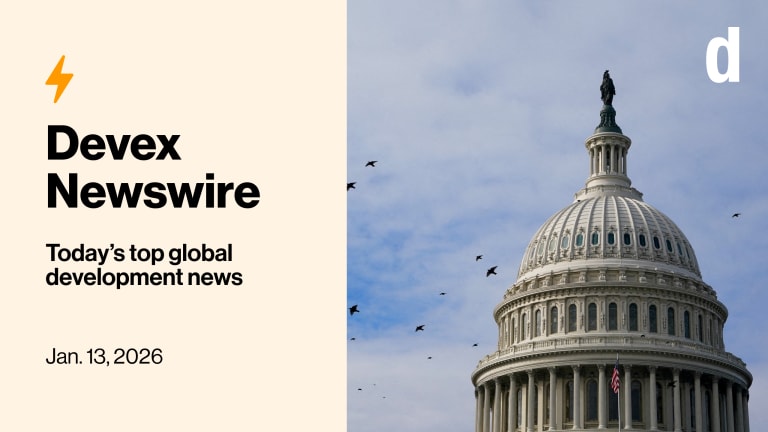
LONDON — Funding research into a COVID-19 vaccine cannot be counted as official development assistance, according to the Organisation for Economic Co-operation and Development.
Donors have spent billions from public budgets on research for a coronavirus vaccine, including with the Coalition for Epidemic Preparedness Innovations, as well as on diagnostics and therapeutics. At least some of that has been advertised as coming from aid budgets.
UK offers little detail on how aid-funded COVID-19 vaccine will be accessible to all
The U.K. government has spent more than £300 million ($373 million) on treatment and vaccine research for COVID-19 but has not said how it will ensure access for lower-income countries.
But the OECD, whose Development Assistance Committee sets the rules on how ODA can be spent, said on Thursday that donations toward work at any organization for a coronavirus vaccine do not meet its ODA criteria.
Although core contributions to CEPI in 2020 will continue to count as ODA, any contributions specifically destined for work on COVID-19 will be “earmarked” as such. DAC members will discuss over the summer which of those earmarked contributions may be counted as ODA, but they would have to have the "economic development and welfare of developing countries as their main objective" in order to do so.
“Research for a vaccine for COVID-19 would not count as ODA as such a vaccine would benefit developed countries as much as developing countries, and should therefore be considered as contributing to addressing a global challenge,” an OECD spokesperson wrote to Devex.
The OECD DAC’s reporting directives specify that research funded by ODA should be focused on “the problems of developing countries.”
ODA can still be spent on CEPI’s other work because of its focus on diseases mainly affecting low-income countries and making vaccines affordable.
“The DAC agreed in 2018 that contributions to the CEPI, set up during the Ebola crisis, could be reported as bilateral ODA for the first years of its operation, since the diseases it prioritised mainly affected developing countries and vaccines would be made available and affordable to low and middle-income countries,” the OECD spokesperson wrote.
The spokesperson continued: “The ODA coefficient for core contributions will remain at 100% in 2020 as any COVID-19 related activities are funded through earmarked contributions. The OECD will review the need for a new coefficient for reporting after 2020, once CEPI launches a new 5-year business plan at the end of 2020.”
“Research for a vaccine for COVID-19 would not count as ODA as such a vaccine would benefit developed countries as much as developing countries.”
— An OECD spokespersonLaunched in 2017 in response to the shortcomings of the medical response to the West African Ebola epidemic, CEPI says its mission is to “accelerate the development of vaccines against emerging infectious diseases and enable equitable access to these vaccines for people during outbreaks.”
It has taken a key role in responding to the COVID-19 pandemic and in March called for $2 billion to fund its coronavirus vaccine research.
Donors that have used their aid budgets to pay for COVID-19 vaccine research through CEPI include the U.K.’s Department for International Development, which contributed £250 million ($310 million) — the most of any country, according to the government.
Update, May 29: This story was amended to include additional details of how contributions will be counted, and to clarify that comments were provided by the OECD.
Visit our dedicated COVID-19 page for news, job opportunities, and funding insights.









